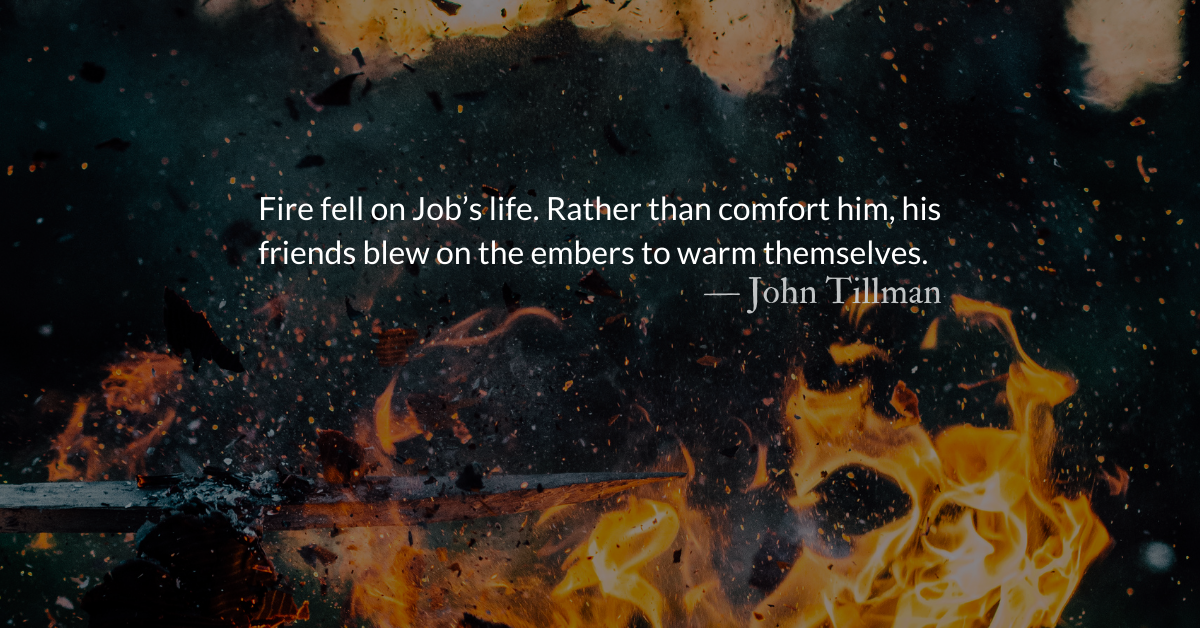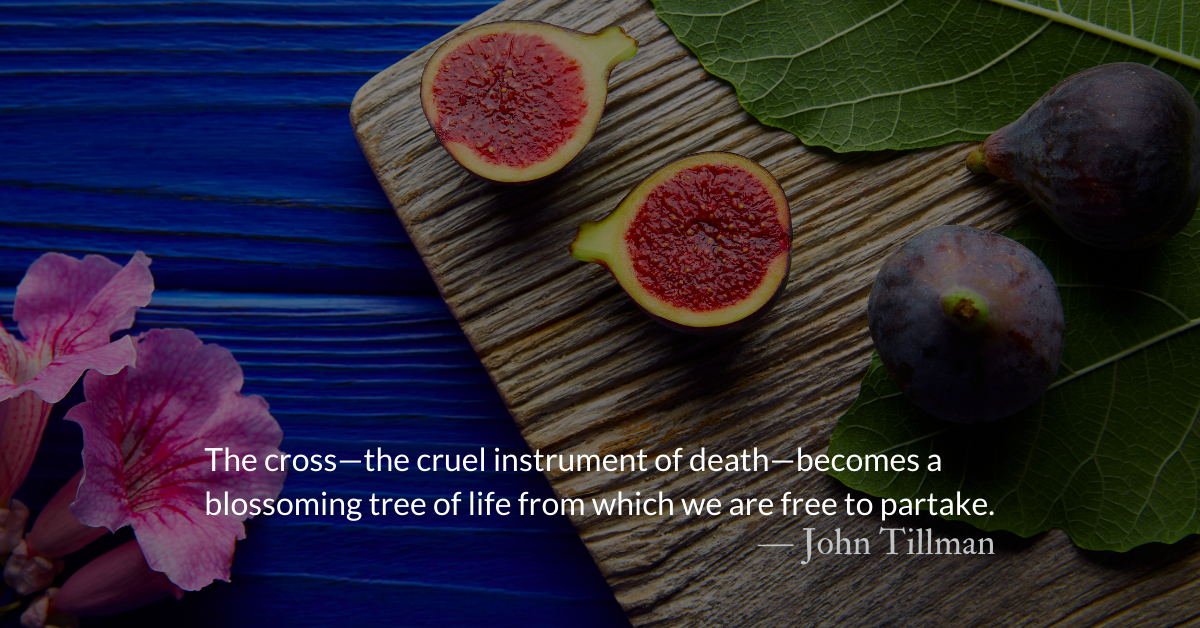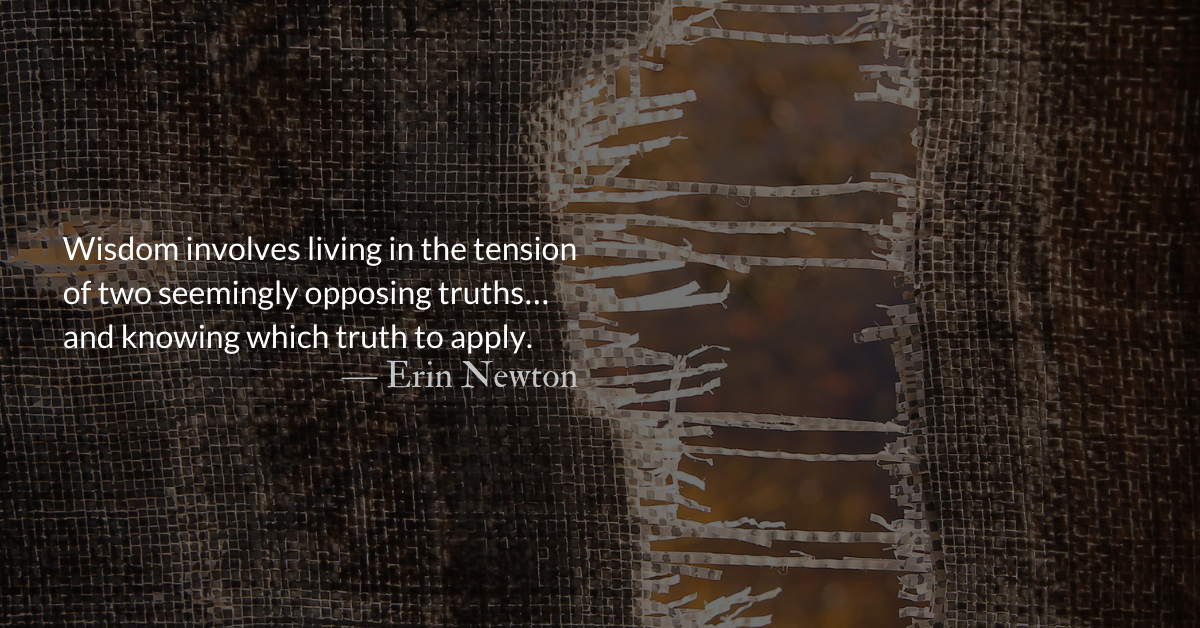Scripture Focus: Job 18.16-21
16 His roots dry up below
and his branches wither above.
17 The memory of him perishes from the earth;
he has no name in the land.
18 He is driven from light into the realm of darkness
and is banished from the world.
19 He has no offspring or descendants among his people,
no survivor where once he lived.
20 People of the west are appalled at his fate;
those of the east are seized with horror.
21 Surely such is the dwelling of an evil man;
such is the place of one who does not know God.”
Psalm 26.1
1 Vindicate me, Lord,
for I have led a blameless life;
I have trusted in the Lord
and have not faltered.
Reflection: Self-Serving Rhetoric
By John Tillman
Job’s friends grew harsher with him as the conversation continued. Contentious debate spiraled into more personal attacks.
Bildad answers, spouting truisms and generalities about things that will befall wicked people. However, he goes beyond just reciting commonly held beliefs. He personalizes them, using details similar to Job’s recent experiences.
“He is torn from the security of his tent and marched off to the king of terrors…”
“It eats away parts of his skin; death’s firstborn devours his limbs…”
“Sulphur is scattered over his dwelling…”
“Fire resides in his tent…”
“He has no offspring…”
“His roots dry up below and his branches wither above…”
Bildad would not have known this, but Job’s spiritual tent of protection had been removed and he had been given over to Satan, a king of terrors. The other details he did know and he turned them against his friend. Job’s “roots,” the sources of his wealth, and his “branches,” his children and extended family, were dried up and withered. His security had been torn away by foreign kings. His children had been crushed in a collapsing building. His skin was being eaten away by sores and illness.
I am convinced that the hostility of Job’s friends and their judgmentalism came from fear and insecurity. The friends are the appalled “people of the west” and “the east.” They were appalled that similar things might happen to them. Proving that Job’s sin brought this on himself was essential to their worldview. Bildad’s images pointed an accusing finger at Job and, by contrast, implied that he and the others were righteous.
Fire fell on Job’s life. Rather than comfort him, his friends blew on the embers to warm themselves.
Blaming others’ choices for their problems gives us false peace in two flavors. We can believe that bad things can’t happen if we are “good.” We can excuse ourselves from helping the suffering because we think their suffering is justice for their wrongs or correction for their foolishness.
In our lives, we can be quick to say, “consequences of your actions” when bad things happen to others and cry “persecution” when bad things happen to us.
Don’t fall victim to the same self-insulating, self-serving, victim-blaming rhetoric as Bildad and the other friends. No matter why fire falls on others’ lives, may we be found tending to the burns rather than stirring up the embers.
Divine Hours Prayer: The Refrain for the Morning Lessons
Then shall all the trees of the wood shout for joy before the Lord when he comes, when he comes to judge the earth. — Psalm 96.12
– From The Divine Hours: Prayers for Autumn and Wintertime by Phyllis Tickle.
Today’s Readings
Job 18 (Listen – 1:54)
Psalm 26-27 (Listen – 3:13)
Join us! Walk through the Bible with us…
Share this subscription link with friends, family, or your community of faith. Find meaning in the Bible this year!
https://mailchi.mp/theparkforum/m-f-daily-email-devotional
Read more about When Help Doesn’t Help
We all reap what we sow, don’t we? Unfortunately, this is a common view of pain and suffering, even in the Church today.











